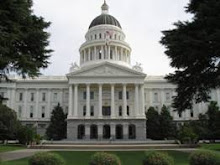California Supreme Court Applies Proposition 64 To Pending Cases, Clarifying Who Has Standing to Sue Under California's Unfair Competition Law
On July 24, 2006, the California Supreme Court issued two opinions involving what standing is required for private litigants attempting to pursue claims under California's Unfair Competition Law (the "UCL"): Californians for Disability Rights v. Mervyn's, No. S131798 and Branick v. Downey Savings and Loan Association, No. S132433 (July 24, 2006).
In November 2004, California voters approved Proposition 64, legislation attempting to stop abuse of the UCL by restricting standing under the Act. Before Proposition 64, a private litigant could file suit under the UCL on behalf of "the general public" regardless of whether or not he or she had suffered any actual injury or damage by the defendant. Proposition 64 stated that a private litigant can only file suit under the UCL when he or she has suffered actual harm.
The question before the California Supreme Court was whether the “standing” requirement of Proposition 64 would be applied to UCL cases filed before Proposition 64 was passed. The California Supreme Court ruled in Californians for Disability Rights v. Mervyn's that Proposition 64 applies to pending cases, but that a plaintiff who lacks any actual harm and therefore standing under the UCL can attempt to amend his or her lawsuit to add a plaintiff who has standing.
The California Supreme Court acknowledged that generally statutes operate prospectively, absent a clear indication that the voters intended otherwise. The Court observed California voters had not indicated that Proposition 64 was to operate retroactively. The Court nonetheless concluded that Proposition 64 did apply to cases pending at the time it took effect, reasoning that a statute is only applied retroactively when the application of the statute would impose new or different liabilities based upon past conduct. The Court found Proposition 64 "left entirely unchanged the substantive rules governing business and competitive conduct. Nothing a business might lawfully do before Proposition 64 is unlawful now, and nothing earlier forbidden is now permitted." Thus the Court found applying Proposition 64 to cases pending at the time it was passed would not constitute the retroactive application of a statute.
The California Supreme Court in Downey also added that plaintiffs could amend their complaint to substitute in someone who had actually suffered actual injury. Such substitution is to be allowed provided that the new plaintiff does not "state facts which give rise to a wholly distinct and different legal obligation against the defendant." Furthermore, the Court held that if the new plaintiff's claim rests on the same general set of facts and injury as the original plaintiff's claim, the new plaintiff's claim will typically "relate back" to the filing of the original complaint. Therefore, the new plaintiff would be able to seek damages for the four-year period statute of limitations period preceding the filing of the original complaint – not just four years from the date s/he was substituted into the case.
In past years it has been commonplace for plaintiff's attorneys to include a UCL claim when asserting the violation of certain statutes, usually alleged violations of California’s Labor Code. The California Supreme Court's decisions will curtail the abuse of the UCL by union leaders and other “puppet plaintiffs,” absent their ability to locate a current or former employee who feels he or she has suffered actual harm. While the Court’s decision is certainly a victory for California’s employers, it is still no substitute for careful examination and adherence to California’s complex employment laws.
skip to main |
skip to sidebar









UPCOMING BASHAM PARKER LLP PRESENTATIONS AND SEMINARS
April 16, 2009
Sacramento County Law Library
10:00 - 11:00 a.m.
813 Sixth Street, Sacramento, California 95814
Title of Session:
Review Session on Practical Considerations in Employee Terminations
Speaker:
Gary R. Basham, Esq., Partner
http://www.saclaw.org/classList.aspx?dy=16&mo=4
Sacramento County Law Library
10:00 - 11:00 a.m.
813 Sixth Street, Sacramento, California 95814
Title of Session:
Review Session on Practical Considerations in Employee Terminations
Speaker:
Gary R. Basham, Esq., Partner
http://www.saclaw.org/classList.aspx?dy=16&mo=4
Labels
- AB 1825 (1)
- Accessability (1)
- ADA (2)
- ADAAA (2)
- ADEA (1)
- Arbitration (1)
- ARRA (1)
- Baby WARN (1)
- Branick (1)
- Brinker v. Superior Court (1)
- Californias for Disability Rights (1)
- CFRA (1)
- COBRA (2)
- Disability (1)
- Discrimination (1)
- DLSE (1)
- DOL (2)
- Downey Savings and Loan Association (1)
- EEOC (1)
- EFCA (2)
- ERISA (2)
- Exempt (2)
- FEHA (1)
- FLSA (1)
- FMLA (1)
- GINA (3)
- Health Care Security Ordinance (2)
- Holidays (1)
- Layoffs (1)
- Legislation (1)
- Meal Periods (1)
- Mervyn's (1)
- Office Parties (1)
- OSHA (1)
- Overtime (1)
- PDL (1)
- PTO (1)
- Public Sector (2)
- Rest Breaks (1)
- Retaliation (1)
- San Francisco (2)
- SB 1608 (1)
- SB 28 (1)
- Settlement Agreements (1)
- Sexual Harassment (1)
- Stimulus Package (2)
- Text Message (1)
- Tips (2)
- Training (1)
- Unfair Competition (1)
- Uniforms (1)
- Union (1)
- Vacation (1)
- Wage and Hour (5)
- Wage Order (1)
- WARN (1)
- Whistleblower (2)
Blog Archive
-
►
2009
(13)
- ► April 2009 (6)
- ► March 2009 (4)
- ► February 2009 (2)
-
►
2008
(7)
- ► December 2008 (1)
- ► November 2008 (5)
-
▼
2007
(6)
-
▼
February 2007
(6)
- THE AFTERSHOCKS OF SAN FRANCISCO’S RECENT ELECTION...
- THE DLSE CLARIFIES POSITION REGARDING PARTIAL DAY ...
- The U.S. Department of Labor Determines Restaurant...
- California Supreme Court Applies Proposition 64 To...
- Wage & Hour: Companies not liable for subcontracto...
- Retaliation: A mixed bag of retaliation between th...
-
▼
February 2007
(6)


OFFICE LOCATIONS
Sacramento:
701 University Avenue, Suite 220
Sacramento, California 95825
Telephone: (916) 925-5850
Facsimile: (916) 925-5854
San Francisco Bay Area:
1850 Mt. Diablo Boulevard, Suite 530
Walnut Creek, California 94596
Telephone: (925) 309-6110
Facsimile: (925) 977-9345
701 University Avenue, Suite 220
Sacramento, California 95825
Telephone: (916) 925-5850
Facsimile: (916) 925-5854
San Francisco Bay Area:
1850 Mt. Diablo Boulevard, Suite 530
Walnut Creek, California 94596
Telephone: (925) 309-6110
Facsimile: (925) 977-9345
Basham Parker LLP


OUR GOALS
At Basham Parker LLP, exceeding expectations is our primary objective. We strive to meet this goal for every client, in every assignment, every day. It inspires us. It characterizes us. It separates and distinguishes us from the rest. Our team of attorneys is experienced, knowledgeable, and dedicated to serving our clients. Our staff is always professional, courteous, and helpful. We are trustworthy and reliable, and are committed to the highest ethical standards in all we do. We know we are here to serve our clients, and we genuinely appreciate the business.
OUR PRACTICE AREAS
Basham Parker LLP attorneys exclusively represent employers with all matters related to employment/workplace law, including, but not limited to:
Advice and Counsel/Litigation Avoidance (Including Employee Handbooks and Policy Review)
Affirmative Action Plans
Agency Claims and Charges
Alternative Dispute Resolution
Appeals
Litigation (Single and Multi-Plaintiff/Class Actions)
Management and Employee Training
These client services include such specialized practice areas as:
Affirmative Action Matters
Age
Disability Management
Employee Leaves
Employee Privacy Rights
Family Status and Pregnancy Issues
Harassment
Independent Contractors and Contingent Workers
Occupational Safety and Health
Race, Ethnicity, Color, and National Origin
Religion
Restrictive Covenants and Non-Compete Agreements
Retaliation
As an additional service to clients and colleagues, Basham Parker LLP provides current employment law-related information and updates through a variety of resources, including regularly published newsletters, special alerts, a Firm sponsored Blog, and an instructive website
Advice and Counsel/Litigation Avoidance (Including Employee Handbooks and Policy Review)
Affirmative Action Plans
Agency Claims and Charges
Alternative Dispute Resolution
Appeals
Litigation (Single and Multi-Plaintiff/Class Actions)
Management and Employee Training
These client services include such specialized practice areas as:
Affirmative Action Matters
Age
Disability Management
Employee Leaves
Employee Privacy Rights
Family Status and Pregnancy Issues
Harassment
Independent Contractors and Contingent Workers
Occupational Safety and Health
Race, Ethnicity, Color, and National Origin
Religion
Restrictive Covenants and Non-Compete Agreements
Retaliation
As an additional service to clients and colleagues, Basham Parker LLP provides current employment law-related information and updates through a variety of resources, including regularly published newsletters, special alerts, a Firm sponsored Blog, and an instructive website
OUR ATTORNEYS
Partners
Gary R. Basham, Esq.
E-mail: gary@bashamparker.com
Phone: (916) 925-5850 Ext. 523
Alden J. Parker, Esq.
E-mail: alden@bashamparker.com
Phone: (916) 925-5850 Ext. 522
Nancy L. McCoy, Esq.
E-mail: nancy@bashamparker.com
Phone: (925) 309-6110 Ext. 560
Associates
Kelley S. Kern, Esq.
E-mail: kelley@bashamparker.com
Phone: (916) 925-5850 Ext. 525
Derek C. Decker, Esq.
E-mail: derek@bashamparker.com
Phone: (916) 925-5850 Ext. 528
Aaron R. Jackson, Esq.
E-mail: aaron@bashamparker.com
Phone: (916) 925-5850 Ext. 529
Meagan Christiansen, Esq.
E-mail: meagan@bashamparker.com
Phone: (916) 925-5850 Ext. 527
Rachael G. Jung, Esq.
E-mail: rachael@bashamparker.com
Phone: (925) 309-6110
Gary R. Basham, Esq.
E-mail: gary@bashamparker.com
Phone: (916) 925-5850 Ext. 523
Alden J. Parker, Esq.
E-mail: alden@bashamparker.com
Phone: (916) 925-5850 Ext. 522
Nancy L. McCoy, Esq.
E-mail: nancy@bashamparker.com
Phone: (925) 309-6110 Ext. 560
Associates
Kelley S. Kern, Esq.
E-mail: kelley@bashamparker.com
Phone: (916) 925-5850 Ext. 525
Derek C. Decker, Esq.
E-mail: derek@bashamparker.com
Phone: (916) 925-5850 Ext. 528
Aaron R. Jackson, Esq.
E-mail: aaron@bashamparker.com
Phone: (916) 925-5850 Ext. 529
Meagan Christiansen, Esq.
E-mail: meagan@bashamparker.com
Phone: (916) 925-5850 Ext. 527
Rachael G. Jung, Esq.
E-mail: rachael@bashamparker.com
Phone: (925) 309-6110



